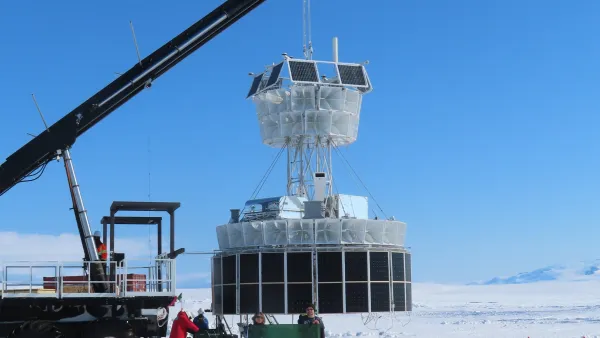NASA's Perseverance rover has made an intriguing discovery—a rock with indications that it may have once harbored microbial life billions of years ago.

This vein-filled rock, nicknamed "Cheyava Falls," has intrigued the science team due to its potential insights into past microscopic life on Mars. Analysis conducted by the rover's instruments suggests that this arrowhead-shaped rock exhibits characteristics aligned with the definition of a possible indicator of ancient life. The rock shows chemical signatures and structures that could have been formed by life when the explored region of Mars had running water. Further research is needed to validate the potential explanation of ancient life, although the science team continues to explore alternative possibilities.
The discovery at Cheyava Falls was made possible by a number of instruments aboard the rover, including the Planetary Instrument for X-ray Lithochemistry (PIXL). Located on the end of Perseverance's robotic arm, PIXL employs an X-ray beam the width of a human hair to scan small areas on rocks to identify which elements are present.

Scientists, including three from the Department of Earth, Environmental, and Planetary Sciences at Washington University in St. Louis, use this information to conduct geochemical analyses and elucidate the formation and potential alteration conditions of the materials analyzed. Senior Research Scientist Scott VanBommel, Staff Scientist Abigail Knight, and postdoctoral research associate John Christian, all affiliated with the McDonnell Center for the Space Sciences, work closely with PIXL as part of the Perseverance Science Team. Their contributions to planning PIXL analyses of Cheyava Falls, as well as on other nearby rocks, and the analyses and modeling of the data returned to Earth, contributed to the Perseverance-wide effort to characterize the astrobiological potential of this rock and the interpretation that it possesses qualities that fit the definition of a possible indicator of ancient life.
Perseverance collected the rock on July 21, while exploring Neretva Vallis, an ancient river valley that was carved by water once flowing into Jezero Crater. The rock measures 3.2 feet by 2 feet and features calcium sulfate veins and hematite bands, providing intriguing details for further analysis.
As part of its astrobiology mission, Perseverance aims to collect and cache samples that may contain traces of ancient microbial life. By studying the planet's geology and climate, this mission paves the way for future human exploration of Mars.




